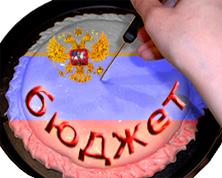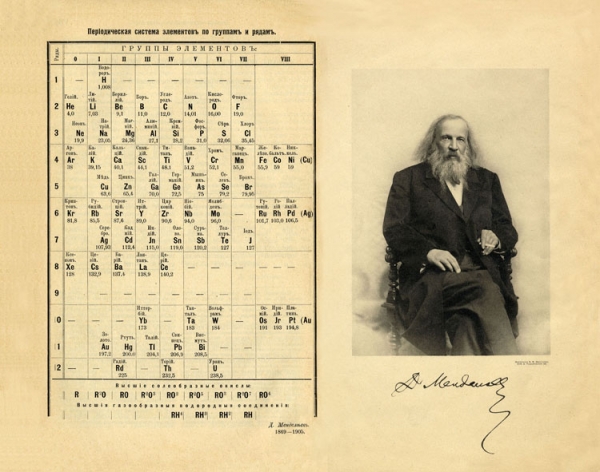
Why Russian science is funded worse than in Greece and Estonia, why young scientists are easy to lose and so difficult to return, says the member of the Central Council of the trade Union of the RAS, scientific researcher of the Physical Institute. P. N. Lebedev Evgeny Onishchenko.
The situation in the scientific organizations close to critical and continues to deteriorate. Budget funding of science is declining, the salary Fund institutions shrinks, it began creeping reduction, no money for utilities, there is a real threat of power outages, not enough money to pay property taxes…
The crisis has affected most areas of life, however, the fundamental science has been particularly hard hit because of the fall of the ruble is the main part of the modern (in the first place — expensive) equipment and a significant part of the necessary reagents and consumables which are manufactured abroad, have risen in price twice.
Participation in international projects and conferences, subscription to essential scientific journals — all this is now twice more expensive than two years ago.
There is another important feature which does not take into account officials, trimming spending on science. Fundamental science is an international field of activity, there is a global market of scientific labour. And if it is difficult to imagine the mass Exodus of officials or employees of law enforcement agencies abroad, in the science of “brain drain” from countries where conditions for scientific work are becoming worse, in countries where researchers normal conditions, is a natural and ongoing process.
The continuation of ignoring the peculiarities of science will cost our country dearly. Officials and security forces, of course, is not going anywhere, and talented young scientists will go where they can count on normal working conditions and wages, and not just on appeals to stay and well wishes.
Ahead of the rest?
However, the government believes that in a crisis situation to reduce costs is necessary because Russia spends on science too much. Appealing to 2014, when the budget expenditures for civilian science made up — in absolute terms — the maximum value for the modern history of Russia, officials claim that the size of the state budget expenditures on research and development we were in fourth place in the world (by purchasing power parity).
It seems impressive, but in 2014 in terms of GDP (purchasing power parity), Russia was in fifth place in the world. The share of government expenditure on research and development relative to GDP (conducting a comparative analysis of “the burden on the budget, it makes sense to look at this indicator in Russia not a record.
Officials continue: in the most developed countries two-thirds or more of funds on research and development is allocated by the business, whereas in Russia, 70% of the funds for science spending by the government. There is a fair amount of guile, even if we talk about the spending on science in General. In most developed countries of the world there are many forms of government promotion of business expenditures on research and development is actually mediated science funding from the state — tax deductions, tax credits, etc.
But discussion of the feasibility of high share of government spending on science is logical only in relation to applied research and development. Fundamental science and in the most economically developed countries has been and remains the responsibility of the state. In the US, three quarters of expenditure on research and development is accounted for by business, but the funding of basic science picture is very different. According to the National science Foundation, in recent years, the share of business in financing of fundamental science did not exceed 6%,
a major load (60%) carried the US Federal budget
(the rest of the resources of States, universities, nonprofit organizations, etc.). The costs of the US Federal budget for fundamental research in this period reached to 0.26% of GDP.
Statistics of the Organization for economic cooperation and development (OECD) gives an overall picture for developed countries. Data separately for expenditures of the state budget no, but the vast majority of countries the state’s share in funding research and development is higher than in the United States, and the share of state budget financing of fundamental science exceeds 60%.
The top three spending on basic science in relation to GDP — Switzerland (0.9% of GDP), South Korea (0,76% of GDP) and Iceland (0,65% of GDP).
Russia, with its 0.18 percent of GDP (i.e. 0.17% of GDP Federal budget) to a prosperous 2014, lagging behind not only most developed in science and technology relating to the countries of Europe, such as France (0.54% of GDP) and the Netherlands (0,56% of GDP),
but also from Estonia (0.37% GDP), Portugal (0.28% of GDP), Spain (0.27 percent of GDP), Poland (0.23% of GDP).
The only two OECD countries that are behind us in this indicator — this is Chile (0.12% of GDP) and Mexico (0.11 percent of GDP). But under current trends, Russia has a good chance to get on their level next year. Looking at these numbers, you realize that it is not catastrophically high load on the Russian budget, and anomalously low costs of our state on basic science.
What to do?
At the VI Congress of the trade Union of the RAS adopted an appeal to Russian President proposing in the coming years to bring funding for basic science from the Federal budget to the level of 0.2% of GDP in the medium term to increase it to 0.25% of GDP.
Where to get the money? The money, which, as is known, not even during the crisis period are easily found, if there is interest from the authorities. For example, last fall, just before the submission of the draft Federal budget for 2016 in the State Duma, his expenses were increased by 165 billion rubles (these funds go to the needs of law enforcement agencies).
Just recently finished the discussion about the allocation of hundreds of billions of roubles of profit of the largest public companies. A small fraction of last year’s profit of “Gazprom” or “Rosneft” would be enough to increase spending on basic science by 10-15 billion rubles this year.
And the size of the budget deficit to 3% of GDP is not from the sky on the tablets launched. Russia’s national debt this year is unlikely to exceed 20% of GDP, so there would be big problems if 2-3 years the budget deficit has remained at 4% of GDP. Additional funds could be spent on health, education, science — investing in the future.
If they are constantly saving, you can eventually turn into a poor and unstable country “Nigeria with rockets”.
The ruin is not in the closet, and in the minds of
Perhaps officials and members of the err in good faith, believing that Russia spends on basic science, and too much money. Let’s educate them. Interested, do we have in the country the situation is worse than in Hungary, Spain, Portugal — the countries with the best economic situation, spending on basic science greater percentage of GDP than Russia.
However, when talking about crisis-hit European countries first recall Greece. In 2009, when the state budget deficit of Greece exceeded 15% of GDP, the country was hit by the financial and economic catastrophe. Lenders providing Greece a very strong pressure to reduce public expenditures that exceeded 25% unemployment plaguing the country protests that reached 180% of GDP public debt, — then certainly it is time to say “no money, hold fast.”
However, in the last years of severe crisis, the costs of Greece to the basic science amount to 0.28 percent of GDP. Considerably more than in Russia in 2014.
The question arises: what of the mysterious disaster that requires to drastically reduce the funding of fundamental science, we erupted? Maybe the words of Professor Preobrazhensky, destruction still in their heads?








